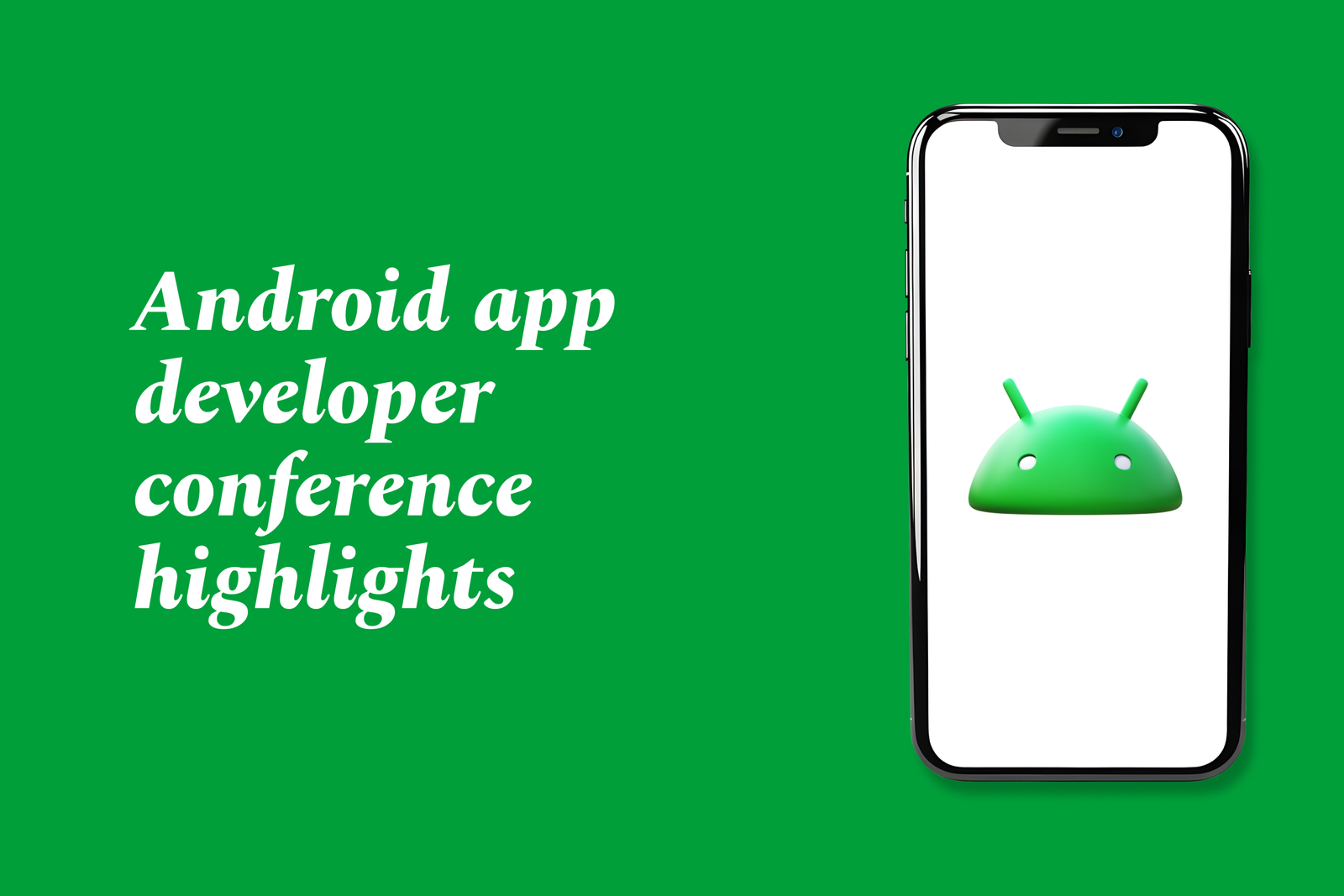Android App Developer Conference Highlights
The Android App Developer Conference is a premier event where developers and experts explore the latest Android tools, updates, and best practices. It features keynotes, workshops, and networking to help create innovative, efficient, and accessible Android applications.
Android App Developer Conference Highlights
1 ) Introduction to the Conference
The Android App Developer Conference showcased the latest trends, tools, and techniques in Android development. It brought together developers, industry experts, and Google engineers to share knowledge and innovations.
2 ) Keynote Sessions
Leading Android engineers presented keynote speeches focusing on new features in the Android platform, best practices for app development, and insights into future updates. Emphasis was placed on performance improvements, security enhancements, and user experience optimization.
3 ) Advanced Development Workshops
Hands on workshops covered topics such as Jetpack Compose, Kotlin Coroutines, and the integration of AI and machine learning in Android apps. These sessions aimed to equip developers with practical skills to create modern, efficient applications.
4 ) New Tools and SDK Releases
Attendees were introduced to the latest Android Studio updates and Software Development Kits (SDKs) that streamline the development process. The conference highlighted improved debugging tools and enhanced profiling capabilities.
5 ) Networking and Collaboration Opportunities
The event provided ample opportunities for networking, enabling developers to connect with peers and industry leaders. Collaboration sessions encouraged knowledge exchange and fostered community growth.
6 ) Focus on Inclusive and Accessible Design
Sessions emphasized the importance of creating apps that are accessible to all users, including those with disabilities. Best practices for inclusive design and testing accessibility features were discussed.
7 ) Closing Remarks and Future Outlook
The conference concluded with a vision for the future of Android development, highlighting the growing role of cross platform compatibility and the expanding Android ecosystem. Attendees left with inspiration and practical knowledge to advance their projects.
https://justacademy.in/news-detail/building-ai-first-apps-with-flutter
https://justacademy.in/news-detail/new-material-3-support-in-flutter-ui-toolkit
https://justacademy.in/news-detail/flutter-ai-sdk-vs-traditional-ml-kits
https://justacademy.in/news-detail/using-google’s-vertex-ai-with-flutter-apps
https://justacademy.in/news-detail/best-flutter-practices-every-developer-should-follow
Related Posts
In 2025, top Angular libraries offer modern, feature-rich components and tools for building dynamic web apps. From powerful data grids to low-code platforms like UI Bakery, these libraries enhance development speed, UI design, and scalability, making them essential for Angular developers.
Migrating from AngularJS to Angular 17 involves gradually upgrading your app by running both frameworks together using tools like ngUpgrade, rewriting components in TypeScript, and adopting Angular’s modern architecture to enhance performance, maintainability, and long-term support.
Angular state management tools help organize and handle app data efficiently, improving scalability and maintainability. Popular options include NgRx for robust, RxJS-based patterns, and newer Signal Store solutions that offer simpler, reactive approaches integrated tightly with Angular’s latest features.
RxJS in Angular empowers developers to manage asynchronous data streams with powerful operators like `forkJoin`, `combineLatest`, and `zip`. Mastering these key operators in 2025 is essential for building efficient, reactive applications that handle complex event sequences seamlessly.
Angular performance optimization in 2025 focuses on improving app speed and responsiveness by using techniques like OnPush change detection, lazy loading, efficient data caching, and AOT compilation. These practices reduce load times, enhance user experience, and ensure scalable, fast Angular applications.
In 2025, Angular remains preferred for large-scale, enterprise apps with its robust, all-in-one framework, while Vue attracts developers seeking simplicity and fast development for smaller projects. Both frameworks excel, with choice driven by project needs and team expertise.
Angular Signals are a new reactive primitive in Angular 16 that enable fine-grained, efficient change detection by automatically tracking dependencies and updating only affected parts of the UI. They simplify state management and boost app performance, revolutionizing Angular's reactivity model.
Angular interview questions to prepare in 2025 focus on core concepts like components, directives, data binding, routing, and dependency injection, along with TypeScript mastery and latest Angular features to ensure strong practical knowledge for building scalable, efficient web applications.
AngularJS reached its official end of support in January 2022, meaning no further updates or security patches. To ensure app security and performance, developers should consider migrating to modern Angular versions or seek third-party long-term support options if immediate migration isn’t possible.
The Angular Roadmap 2025 highlights upcoming features focused on improving developer experience and performance, including zoneless Angular, Signals integration, enhanced Forms, async data handling, improved HMR, and expanded Angular Material/CDK enhancements, driving modern, efficient web app development.










